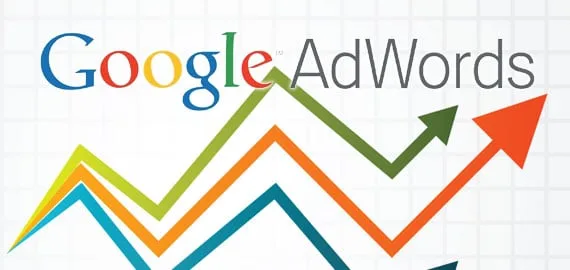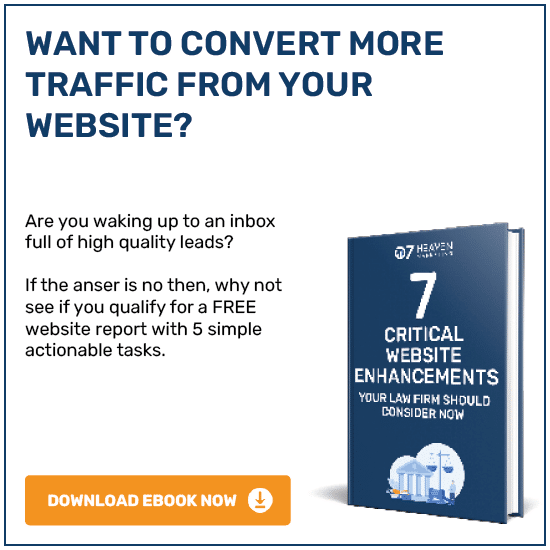For businesses looking to get going with Pay Per Click (PPC), it can be very overwhelming. There’s so much data that can be used and so many factors to consider when setting up Pay Per Click campaigns, not to mention the cost of both time and for the ads themselves.
With thoughtful planning, you and your business can get the most from your PPC budget as it is a helpful resource investment to get some early leads in your SEO adventure.
These are the most important 5 considerations when starting a PPC campaign. This is not a full list and the list is just an opinion I share with a few other PPC experts.
1) Define your goals as specifically as possible.
With planning anything with marketing, thinking about your end goals is the most important thing. After all, you need to figure out what you hope to accomplish with your PPC efforts and how they align with your overall business goals.
To create your PPC marketing plan, ask yourself:
Think about your business: What do we offer? What makes us special? Where do we offer our product?
Think about your clients: Who is our target audience? Where are our potential customers? What do we want our prospects to do (e.g. to buy, to sign up)?
Think about your budget: What is our budget? How much do we want to spend monthly on PPC? How much do we want to pay for one new customer, sign-up, etc? The more specific your targets are, the better chance you have at accurately measuring your success.
2) Develop a comprehensive keyword list.
When it comes to keyword selection for start ups, long-tail terms are great ones to go after. They’re highly targeted, and may be more cost-efficient than more competitive terms.
What are long-tail key terms? These are key terms that are more than 3 words long and they are more focused. For example, if you’re in mortgage lending, long-tail terms your audience might be searching could include “how to get a mortgage” or “where I can get a mortgage.”
To determine which long-tail terms are best for your PPC campaigns, you can use tools like Google’s Keyword Planner.
3) Know your competitors like your best friend.
After identifying your goals and a solid keyword list, complete a competitive analysis. This is an assessment of your competitors, which basically is asking the same questions that you did about your business but about theirs instead.
Do other businesses offer a benefit for which you offer a strong differentiation? Are they bidding on keywords you’ve missed? How are their ads and landing pages different from yours? Asking yourself these questions can provide clarity regarding who else is in your market and what their acquisition tactics are.
When looking at the competition, keep in mind to differentiate harmless competitors from dangerous ones. Don’t waste time and money with competitors that aren’t your primary ones. Instead, focus on the ones that are thriving in your market and industry (and that people are actively searching for online).
4) Track your conversions right from the start.
Measuring conversions can help you determine what expenditures led to conversions and which ones didn’t, so you can optimise your spend. Knowing which ones led to clicks, leads, and customers can give you a clear picture about the success not only of your PPC campaigns, but also about your target audience and how you can adjust your messaging across all your marketing assets.
If you can’t attribute actual leads and customers to your PPC activities, you can’t make intelligent decisions about where to cut spend (or increase it). So use a conversion tracking tool like Google AdWords Conversion Tracking or Google Analytics Conversion Tracking right from the start and never run your PPC campaigns blindly.
HubSpot Customers: You can track PPC conversions in Sources through the Paid Search bucket, which grabs any tracking tokens related to PPC.
5) Review to fine-tune your PPC campaigns and skills.
Being really successful with PPC requires becoming a real pro. How do you start? Learn from experts, and never stop learning yourself, because PPC is constantly changing with new updates and features.
You could also try a bid management tool that optimizes your PPC campaigns automatically and concentrate on the optimization of your ads, landing pages, etc. Some bid management providers offer a free trial during which you can test whether you feel comfortable using the solution.
Hope this has been helpful and if you are doing PPC yourself make sure that you visit it daily to check that it is working and if things are not working- do not panic. Seek some help and think about what could be contributing for the failure and amend it.
For further insights and guidance, we invite you to explore our blog at 07hm.co.uk/blog. Here, you’ll find a wealth of information tailored to the needs and challenges of SMEs navigating the digital landscape. Additionally, if you have specific questions or need personalised advice, don’t hesitate to reach out to us via email at info@07hm.co.uk or telephone on 01702 410663.






